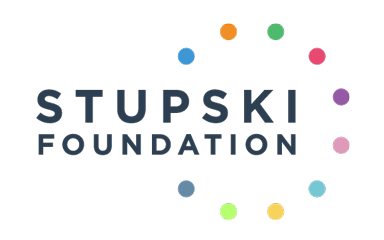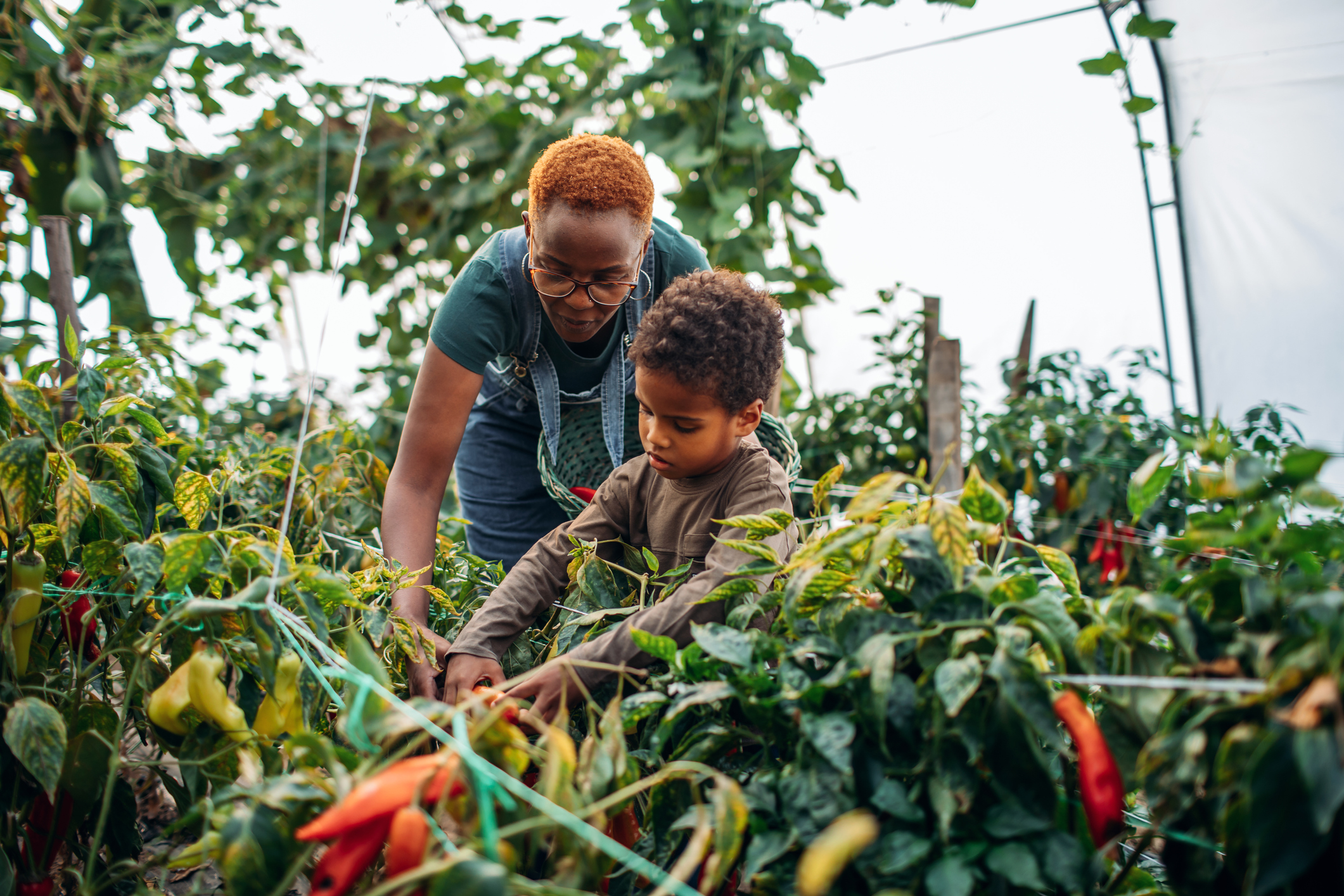Stupski Foundation invites organizations to apply for funding to support efforts to advance just and equitable food systems in San Francisco and Alameda Counties.
We invite interested community-based organizations advancing food security to submit a high-level one-page description of their work for consideration for funding. We are seeking organizations that are informed and led by Black, Indigenous, Latinx, Asian American, Pacific Islander, and other people of color who are representative of the communities where they work and primarily focus their efforts in San Francisco and/or Alameda Counties.
Apply by Nov. 17, 2021.
Selected finalist organizations will be invited to submit a full proposal for funding due Feb. 18, 2022.
About This Opportunity
At the Stupski Foundation, we believe that dignified, nutritious, equitably produced, and culturally relevant food is a fundamental right. Through this funding invitation, the Foundation seeks to strengthen existing community-based organizations and coalitions working to advance just, healthy, and equitable food systems. For decades, communities of color and people living in low-income ZIP codes have faced racial, economic, health, and environmental disparities linked to underlying factors including the rising costs of living, inequitable access to employment and affordable housing, and historic disinvestment. While responses to immediate food security needs are crucial, we seek to bolster efforts that focus on long-term, multigenerational transformation; address the systemic root causes of food insecurity; and build a thriving future beyond the current crisis.
Eligible organizations may work across an intersection of issues, with established priorities that include healthy food systems, food justice, and food sovereignty. While food justice does not need to be the exclusive mission of applying organizations, it should be a central part of their work. Organizations must be committed to an assets-based approach (uplifting community knowledge, wisdom, strengths) rather than a focus on deficits. We value the lived experiences of communities of color and share the belief that these viewpoints and skills are essential to long-term transformation of food systems. Additionally, we encourage organizations whose work includes at least one or more of the following approaches to apply:
- Community Leadership Development—Organizations are informed and led by the communities they serve and where they live, work, and play. They build power and capacity among local residents, frontline community leaders, and stakeholders.
- Healthy Local Economies—Organizations strengthen community-directed land and food infrastructure to support healthy, local, culturally relevant food access and spur economic opportunities and/or neighborhood and community ownership (e.g., worker-owned cooperatives, healthy food social enterprise). Proposals can include support for infrastructure (e.g., land, healthy foods processing facilities).
- Health and Well-being—Organizations prioritize improvements in individual and collective wellness (mental, physical, emotional, identity) and access to nutritious and culturally relevant foods.
- Policy and Advocacy—Organizations advance policy and advocacy or grow community engagement and leadership capacity related to policy and advocacy in healthy food access, food justice and sovereignty, and food as medicine.
- Just Transition—Organizations work to transform food and agricultural systems from the current extractive economic model toward models that foster community ownership, care for the land and water, and thriving local economies.
- Arts and Culture—Organizations integrate arts and culture as a tool for advancing long-term food security, food justice, and/or food sovereignty.
- Asset-Based Metrics—Organizations focus on outcomes related to community resilience, ownership, health, and/or sustainability.
Who Should Apply
- Organizations that serve San Francisco and/or Alameda Counties. While all towns and cities within those two counties are eligible, we especially encourage groups working in geographies underrepresented in Stupski’s current grantmaking portfolio, including Hayward, Union City, San Leandro, San Lorenzo, Castro Valley, Dublin, and Sunol.
- Organizations that employ, are informed by, and led by the communities they serve. We will prioritize funding to organizations led by Black, Indigenous, Latinx, Asian American, Native Hawaiʻian, Pacific Islanders and/or other people of color and organizations that demonstrate a history of working with communities of color.
- Nonprofit or fiscally sponsored organizations (small businesses can be members of a nonprofit coalition).
- Groups with a clear lead organization or representative. Collaborative proposals are invited and encouraged, and applicants should identify a lead organization to serve as the key respondent.
How to Apply
For this preproposal application, please submit a one-page concept paper that includes a brief overview of your organization’s planned efforts to advance just, healthy, and equitable food systems within San Francisco and/or Alameda Counties, including:
- The vision and goals for the work and areas of learning you anticipate tracking
- A description of how your leadership is informed and led by the communities you serve
- An estimated grant budget (between $100,000-$200,000 per year over two to three years or for a total of up to $600,000). The budget should be proportional to organizational maturity and project scope. Stupski encourages a diverse mix of projects at all funding levels.
The Foundation’s food security team will independently review each organization’s website and other publically available materials. We anticipate receiving more applications than we can fund. After we make a decision, we will send applicants an email indicating their proposal status. In this initial phase, we anticipate partnering with six to eight organizations. If we do not invite your organization to submit a final application in this round, we may still invite you to do so in the future.
What We Do Not Fund
At this time, the Foundation is generally unable to fund:
- Proposals that do not reflect the priority strategies outlined above
- Individuals
- Academic research (without implementation plans or community-based organizations partnerships)
- For-profit institutions or for-profit programs (However, small businesses can be members of a nonprofit coalition or collaboration.)
- Programs or initiatives that do not prioritize communities with immigrants, refugees, and people of color in low-income areas of San Francisco and Alameda Counties
- Requests for endowments, lobbying, or voter registration funds
Key Dates
- Oct. 28, 2021—We hosted an optional online information session to answer FAQs about the application process. Watch a recording of the session here (password: $Am@5bUl) and read responses to the most frequently asked questions in the dropdown menu below.
- Nov. 17, 2021—Please email your completed one-page concept paper to Aileen Suzara, food security program officer, and Patrick Lee, consultant, at foodsecurityapplication@stupski.org.
- Jan. 18, 2022—Stupski staff will send an invitation for a final proposal to selected organizations. An additional follow-up call may be requested after submission.
- Feb. 18, 2022—Deadline for proposal submission.
- Feb. 28, 2022—Grants awarded.
Information Session Q&As
We are grateful for the thoughtful and candid questions that attendees brought to the information session and sent in by email. Below is a synthesis of key questions:
Proposal Length & Content
We encourage one-page concept papers. For collaborative projects with multiple partners, we are open to one- to two-page papers to account for multiple partnerships.
In place of links, please focus on the content of your organization/project. The committee plans to review publicly available data (such as organizational websites).
We are open to reviewing concept papers that include narrative and/or data-based framing.
Are there any stipulations around costs such as materials, delivery costs, and administrative costs?
Our goal is to provide flexible project funding, which can include direct and indirect costs.
Yes, we anticipate future cycles of an RFP.
Applying as Individuals or as a Collaborative
We encourage individual community-based organizations (CBOs) and collaboratives to apply. We recognize that some initiatives (whether individual CBOs or collaboratives) may have a larger budget than funding available in this invitation. We encourage applicants to include a budget that reflects the funding amount they seek, even if available awards are less than the requested amount. We will revisit flexible funding of initiatives during the review process and be in touch to request clarifying information.
Timeline
Stupski staff will notify selected organizations by Jan. 18, 2022. Final proposals will be due on Feb. 18, 2022. The Foundation will notify finalists by Feb. 28, 2022.
Process
One of the guiding decisions behind the open RFP process was to expand beyond the traditional model of invitation-only funding and broaden Stupski’s outreach to include initiatives that may be underfunded, beyond our existing networks, or emergent. We also must acknowledge that this process operates within a complex history and context of funding disparities and power imbalances in the field. There remain many areas for the Foundation and the field of philanthropy at large to grow, and this is one of the steps we are taking to begin to shift those ongoing dynamics in our work.
Questions? Please contact foodsecurityapplication@stupski.org.
Learn More About the Stupski Foundation
Stupski Foundation is a private spend down foundation that is investing all of our assets by 2029 so one day everyone can benefit from the wealth of opportunities and resources in the places we call home. The Foundation focuses on food security, postsecondary success, early brain development, and serious illness care in San Francisco and Alameda Counties and Hawaiʻi. Learn more about our grantmaking programs and why we are spending down.


